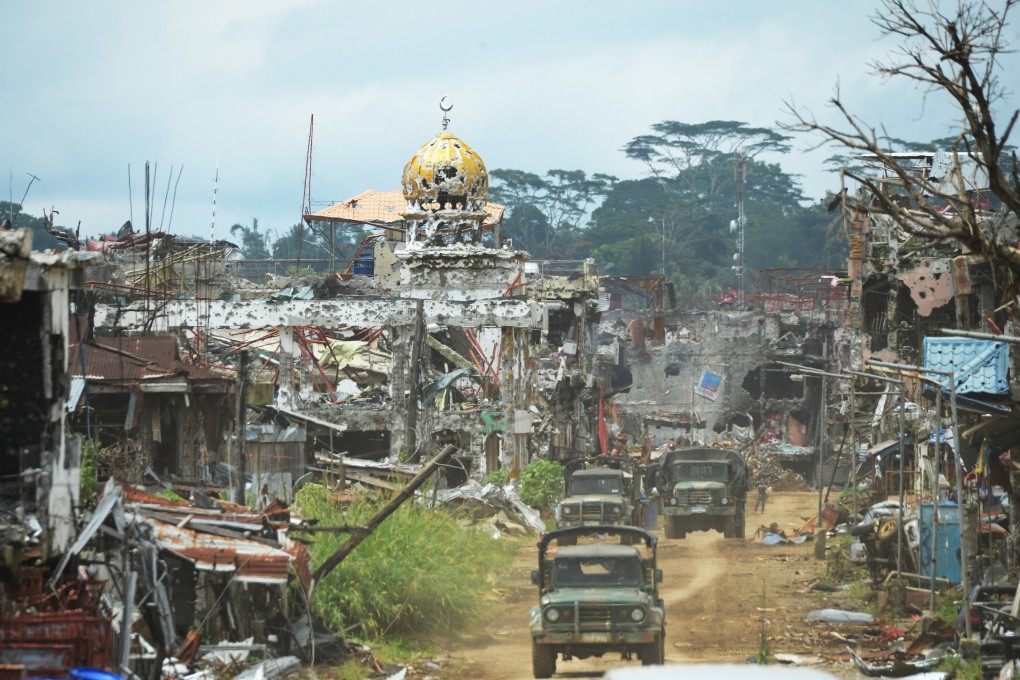Opinion | Marcos Jnr should look beyond jihadist ideology to stop Islamic State recruitment in the Philippines
- A five-month Islamic State siege of southern city Marawi in 2017 killed more than 1,000 people and blighted the lives of over 1 million others
- If Marcos Jnr wants to put a stop to such a thing happening again, he must focus not on religion but on poverty and other socioeconomic factors

If history has a habit of repeating itself, a short but deadly conflict between Islamic State-linked violent extremist organisations (IS-linked VEOs) and the Armed Forces of the Philippines should be making the administration of new Filipino President Ferdinand Marcos Jnr more than a little concerned – although those in charge would be wise to delve deep to find out what really caused the fighting.
It was 2017 when such VEOs took over the southern city of Marawi, home to around 200,000 people and the country’s only Islamic city. They wanted to establish a wilayah (administrative division) in the wider Bangsamoro region, home to the Muslim-majority Moro community. In response, the Philippine military attacked Marawi.
After a five-month long siege between May and October, during which more than 1,000 people died and over one million were displaced from their homes, the military managed to take the city back.
Could such a violent and deadly clash happen again? This is the key security question that the new government under Marcos Jnr will have to grapple with.
Many people believe the next phase of violent extremism in the southern Philippines may emerge due to developments in the Middle East and Central Asia, especially the re-emergence of the Taliban in Afghanistan.
But this fear is misplaced. Jihadist ideology is not the main driving force of extremist recruitment in the Bangsamoro. In fact, studies (such as those conducted by The Asia Foundation, as well as the author’s fieldwork) have shown that the main driving forces are rising poverty and a lack of local socioeconomic opportunities for Moro youth.
